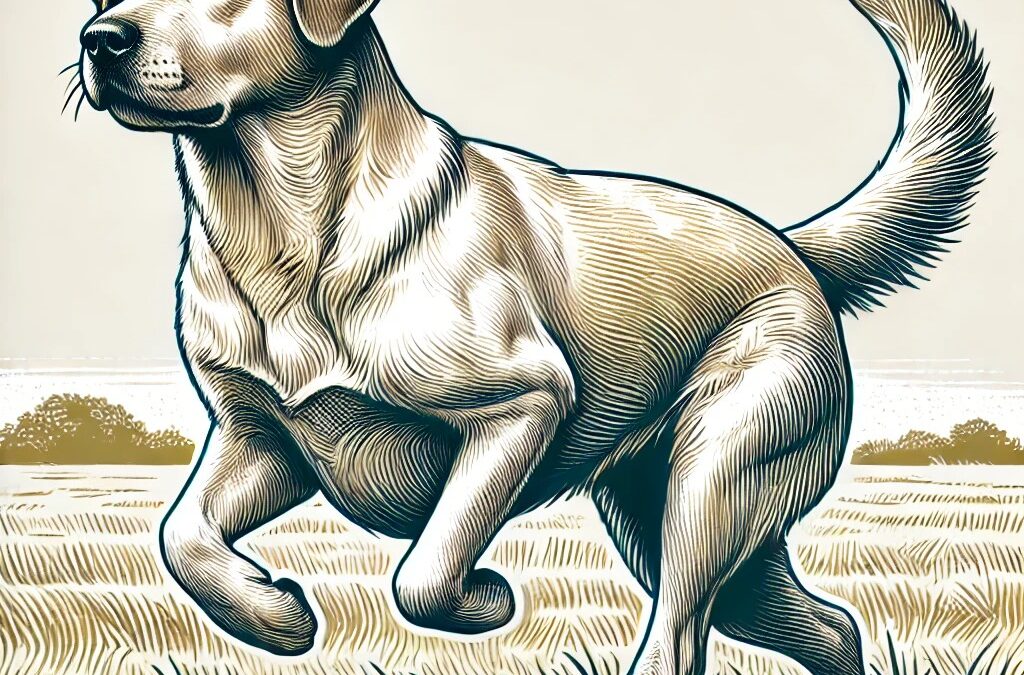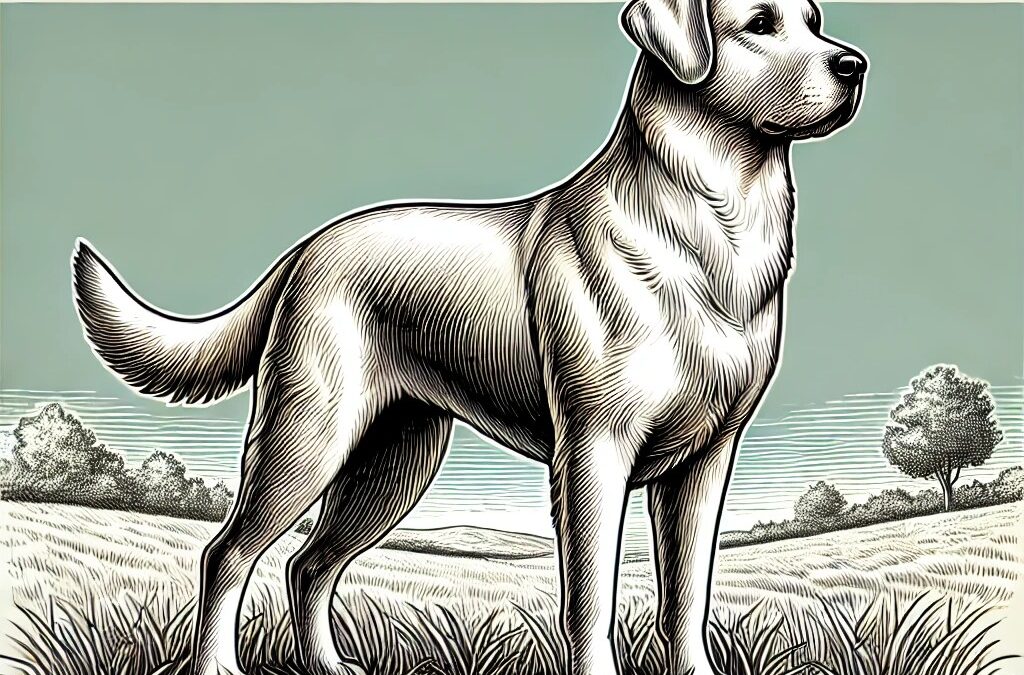
by TCMVET | Jul 4, 2024 | Dog Cancer & Tumors
As pet owners, we strive to provide our furry companions with the best care possible. However, two significant health concerns, canine cancer and osteoporosis, pose serious risks to their well-being. This article delves into the risk factors associated with these conditions and offers insights into prevention strategies, aiming to equip pet owners with the knowledge needed to safeguard their dogs’ health.
Understanding Canine Cancer
Canine cancer is a leading cause of death among dogs, affecting various breeds and ages. It encompasses a range of malignancies, including lymphoma, mast cell tumors, and osteosarcoma. Identifying the risk factors can help in early detection and intervention.
Common Risk Factors for Canine Cancer
- Age: Older dogs are more susceptible to cancer due to accumulated cellular damage over time.
- Breed: Certain breeds, such as Golden Retrievers, Boxers, and Rottweilers, have a higher predisposition to specific cancers.
- Genetics: Family history plays a crucial role; dogs with cancer-prone relatives are at greater risk.
- Environmental Exposure: Prolonged exposure to carcinogens, such as pesticides and tobacco smoke, can increase cancer risk.
- Diet and Obesity: Poor diet and obesity can contribute to the development of cancer, emphasizing the importance of balanced nutrition.
Recognizing Osteoporosis in Dogs
Osteoporosis, a condition characterized by weakened bones, is less commonly discussed but equally concerning. It can lead to fractures and reduced mobility, significantly impacting a dog’s quality of life.
Common Risk Factors for Canine Osteoporosis
- Age: Similar to cancer, older dogs are more prone to osteoporosis due to natural bone density loss.
- Breed: Small and toy breeds are particularly susceptible, but large breeds can also be affected.
- Nutritional Deficiencies: Lack of essential nutrients, particularly calcium and vitamin D, can weaken bones.
- Lack of Exercise: Regular physical activity is crucial for maintaining bone density; sedentary lifestyles increase osteoporosis risk.
- Hormonal Imbalances: Conditions like hypothyroidism and hyperparathyroidism can contribute to bone density loss.
Prevention Strategies for Canine Cancer and Osteoporosis
Prevention is always better than cure. Implementing proactive measures can significantly reduce the risk of both cancer and osteoporosis in dogs.
Diet and Nutrition
- Balanced Diet: Provide a well-balanced diet rich in essential nutrients. Incorporate high-quality proteins, healthy fats, and a variety of fruits and vegetables.
- Supplements: Consider supplements like Omega-3 fatty acids, antioxidants, and vitamins to support overall health and immunity.
- Weight Management: Maintain a healthy weight to reduce the risk of obesity-related cancers and bone density loss.
Regular Exercise
- Physical Activity: Ensure your dog gets regular exercise to strengthen bones and maintain a healthy weight. Activities like walking, running, and playing are beneficial.
- Strength Training: Incorporate strength training exercises, such as climbing stairs or playing with resistance toys, to build bone density.
Routine Veterinary Check-ups
- Regular Screenings: Schedule routine veterinary visits for early detection of potential health issues. Regular blood tests and imaging can identify problems before they become severe.
- Dental Health: Dental hygiene is essential, as infections can spread and affect overall health, including bones.
Environmental Safety
- Limit Exposure to Carcinogens: Avoid exposing your dog to harmful chemicals, pesticides, and second-hand smoke.
- Safe Living Environment: Provide a safe and clean living environment to reduce the risk of infections and injuries.
Understanding the risk factors for canine cancer and osteoporosis is crucial for proactive pet care. By implementing preventive measures, including a balanced diet, regular exercise, and routine veterinary check-ups, you can significantly reduce the risk of these conditions and ensure your dog leads a healthy and fulfilling life. Stay informed, stay vigilant, and cherish every moment with your loyal companion.

by TCMVET | Jul 4, 2024 | Medicines & Therapies
As devoted pet owners, ensuring the comfort and well-being of our furry companions is paramount. Pain management is a critical aspect of veterinary care, especially for dogs suffering from chronic conditions or recovering from surgery. This article delves into the benefits and risks of various analgesics for dogs, offering insights to help you make informed decisions for your pet’s pain relief.
Understanding Pain in Dogs
Recognizing pain in dogs can be challenging, as they often hide their discomfort. Common signs of pain include limping, reduced activity, changes in appetite, and vocalizations. Identifying these signs early and seeking veterinary advice is crucial for effective pain management.
Types of Analgesics for Dogs
- Non-Steroidal Anti-Inflammatory Drugs (NSAIDs)
- Benefits: NSAIDs like carprofen and meloxicam are commonly prescribed for their anti-inflammatory and pain-relieving properties. They are effective for conditions such as arthritis and post-surgical pain.
- Risks: Potential side effects include gastrointestinal issues, kidney damage, and liver problems. Regular monitoring and adherence to dosage recommendations are essential.
- Opioids
- Benefits: Opioids such as tramadol and morphine provide powerful pain relief, making them suitable for severe pain and post-operative care.
- Risks: Side effects can include sedation, constipation, and potential for dependency. They should be used under strict veterinary supervision.
- Gabapentin
- Benefits: Gabapentin is effective for neuropathic pain and as part of multimodal pain management. It is often used for chronic pain conditions.
- Risks: Possible side effects include sedation and ataxia. Gradual dosage adjustments are recommended to minimize adverse effects.
- Corticosteroids
- Benefits: Corticosteroids like prednisone can reduce inflammation and provide pain relief for conditions like autoimmune diseases and severe allergies.
- Risks: Long-term use can lead to side effects such as increased thirst, hunger, and potential for immune suppression. They should be used with caution and under veterinary guidance.
- Alternative and Complementary Therapies
- CBD Oil: Increasingly popular for its anti-inflammatory and analgesic properties, CBD oil can be a valuable addition to pain management strategies.
- Acupuncture and Physical Therapy: These non-pharmacological approaches can enhance pain relief and improve mobility, often used in conjunction with traditional medications.
Balancing Benefits and Risks
When considering analgesics for your dog, it is crucial to weigh the benefits against potential risks. Here are some key factors to consider:
- Veterinary Guidance: Always consult with your veterinarian before starting any pain management regimen. They can provide tailored advice based on your dog’s specific needs and health condition.
- Monitoring: Regular check-ups and monitoring are essential to identify any adverse reactions early and adjust treatment plans accordingly.
- Combination Therapy: Sometimes, a combination of medications and therapies can provide optimal pain relief with fewer side effects.
- Natural Supplements: Integrating natural supplements, such as Omega-3 fatty acids and glucosamine, can support joint health and reduce inflammation, complementing traditional analgesics.
Effective pain management in dogs requires a careful balance of benefits and risks. By understanding the different types of analgesics available and working closely with your veterinarian, you can ensure your furry friend enjoys a comfortable and pain-free life. Stay vigilant, informed, and proactive in managing your dog’s pain, and cherish the joy and companionship they bring to your life.

by TCMVET | Jul 4, 2024 | Dog Cancer & Tumors
Canine bone cancer, also known as osteosarcoma, is a formidable adversary for our furry companions. As pet owners, understanding the implications of this disease is crucial, especially when it comes to the potential for paralysis. This article delves into the intricacies of canine bone cancer, its symptoms, treatment options, and how it can lead to paralysis, providing valuable insights for pet owners seeking to protect their beloved pets.
Understanding Canine Bone Cancer
Osteosarcoma is the most common type of bone cancer in dogs, predominantly affecting large and giant breeds. This aggressive cancer originates in the bone, leading to pain, swelling, and ultimately, the destruction of the bone itself. Early detection is vital for effective treatment, yet the symptoms can often be mistaken for less severe conditions like arthritis or minor injuries.
Symptoms to Watch For
Recognizing the early signs of osteosarcoma can make a significant difference in your dog’s prognosis. Common symptoms include:
- Lameness: Persistent limping or difficulty walking is often one of the first signs.
- Swelling: Noticeable swelling at the site of the tumor, typically around the limbs.
- Pain: Your dog may show signs of discomfort or pain when touched or when using the affected limb.
- Fatigue: Reduced activity levels and reluctance to play or exercise.
- Weight Loss: Unexplained weight loss despite normal eating habits.
The Link Between Bone Cancer and Paralysis
One of the most devastating complications of canine bone cancer is the potential for paralysis. As the tumor grows, it can exert pressure on surrounding tissues, including nerves. If the cancer spreads to the spine or affects the spinal cord, it can lead to partial or complete paralysis. This progression underscores the importance of early detection and intervention.
Diagnosis and Treatment Options
Diagnosing osteosarcoma typically involves a combination of physical examinations, X-rays, and biopsies. Once confirmed, treatment options may include:
- Surgery: Amputation of the affected limb is often recommended to remove the primary tumor and alleviate pain.
- Chemotherapy: To address metastasis and improve survival rates, chemotherapy is often administered alongside surgery.
- Radiation Therapy: This can be used to manage pain and reduce tumor size, particularly in cases where surgery is not feasible.
Alternative and Complementary Therapies
In addition to conventional treatments, many pet owners explore alternative therapies to support their dog’s health. These may include:
- CBD Oil: Known for its anti-inflammatory and pain-relieving properties, CBD oil is increasingly used to manage cancer symptoms and improve quality of life.
- Dietary Supplements: Supplements like Omega-3 fatty acids and antioxidants can support overall health and strengthen the immune system.
- Physical Therapy: Tailored exercises and therapies can help maintain mobility and muscle strength, reducing the risk of paralysis.
Preventive Measures and Regular Check-ups
While osteosarcoma cannot always be prevented, regular veterinary check-ups and a healthy lifestyle can play a significant role in early detection and management. Maintaining an active lifestyle, providing a balanced diet, and monitoring any changes in your dog’s behavior or physical condition are essential steps in safeguarding their health.
Canine bone cancer is a challenging diagnosis, but understanding its implications, especially the threat of paralysis, empowers pet owners to take proactive measures. Early detection, combined with a comprehensive treatment plan, can significantly improve your dog’s quality of life and potentially extend their time with you. Stay vigilant, stay informed, and cherish every moment with your loyal companion.

by TCMVET | Jul 3, 2024 | Dog Cancer & Tumors
When we think about canine cancer, the focus often falls on tumors and their direct effects. However, the impact of cancer on a dog’s balance and coordination is a crucial aspect that can significantly affect their quality of life. This article explores how cancer affects these critical functions and what pet owners can do to help their furry friends navigate these challenges.
The Connection Between Canine Cancer and Balance Issues
1. Brain Tumors and Neurological Effects
Brain tumors are a primary cause of balance and coordination issues in dogs. These tumors can interfere with the brain’s normal functions, including those that control movement and balance. Symptoms might include:
- Head Tilt: A noticeable tilt of the head to one side.
- Circling: Walking in circles rather than a straight line.
- Stumbling and Falling: Difficulty maintaining balance, leading to frequent falls.
- Seizures: Uncontrolled movements that can affect overall coordination.
2. Inner Ear Tumors
The inner ear plays a vital role in maintaining balance. Tumors in this area can disrupt the vestibular system, leading to:
- Dizziness: Dogs may appear disoriented and unsteady.
- Nystagmus: Rapid, involuntary eye movements.
- Loss of Coordination: Difficulty walking or standing normally.
3. Metastatic Cancer
Cancer that spreads from its original site to other parts of the body can also affect balance and coordination. For example, cancer that metastasizes to the spine can compress the spinal cord, impacting a dog’s ability to walk and maintain balance.
Symptoms to Watch For
Early detection is key to managing balance and coordination issues in dogs with cancer. Symptoms to monitor include:
- Unsteady Gait: Walking with a wobble or unsteady steps.
- Lack of Coordination: Difficulty performing routine movements.
- Reluctance to Move: Avoiding physical activity due to discomfort or instability.
- Frequent Falls: Tripping or falling more often than usual.
- Eye and Head Movements: Abnormal eye movements or head tilting.
Diagnosis and Treatment
Proper diagnosis and timely intervention can help manage the impact of cancer on your dog’s balance and coordination. Veterinary care may include:
1. Neurological Examination
A comprehensive neurological exam can help identify the underlying cause of balance issues. This may involve:
- Reflex Tests: Checking limb reflexes and responses.
- Eye Movement Assessment: Observing for nystagmus or abnormal eye movements.
- Gait Analysis: Evaluating walking patterns and coordination.
2. Imaging Techniques
Advanced imaging techniques like MRI and CT scans can detect tumors in the brain, inner ear, or spine, providing a clear picture of the affected areas.
3. Treatment Options
Treatment depends on the type and location of the cancer. Options may include:
- Surgery: Removing tumors that are accessible and operable.
- Radiation Therapy: Targeting tumors with radiation to shrink them and alleviate symptoms.
- Chemotherapy: Using drugs to slow tumor growth and spread.
- Supportive Care: Medications to manage symptoms and improve quality of life.
Supporting Your Dog at Home
Helping your dog cope with balance and coordination issues involves making some adjustments at home:
1. Safe Environment
Ensure your home is free from obstacles that could cause your dog to trip or fall. Use non-slip mats and remove clutter from pathways.
2. Assistive Devices
Consider using harnesses or support slings to help your dog move around safely.
3. Gentle Exercise
Encourage gentle exercise to maintain muscle strength and coordination, but avoid activities that could cause falls or injuries.
4. Regular Veterinary Visits
Keep up with regular veterinary check-ups to monitor your dog’s condition and adjust treatments as necessary.
Canine cancer can significantly impact a dog’s balance and coordination, but with early detection, appropriate treatment, and supportive care, you can help your furry friend navigate these challenges. By staying vigilant and proactive, you can ensure your dog maintains the best possible quality of life.

by TCMVET | Jul 3, 2024 | Dog Cancer & Tumors
Understanding the intricate relationship between canine cancer and blood sugar levels is vital for pet owners and veterinarians. Recent studies suggest that managing blood sugar levels can play a crucial role in the treatment and prevention of cancer in dogs. This article delves into the connection between cancer and blood sugar, highlighting key insights and practical steps for maintaining your dog’s health.
How Blood Sugar Levels Affect Canine Cancer
1. The Role of Glucose in Cancer Growth
Cancer cells thrive on glucose, using it as a primary energy source to fuel their rapid growth and proliferation. Elevated blood sugar levels can create an environment that supports the development and spread of cancer. By understanding this connection, pet owners can take proactive steps to regulate their dog’s blood sugar, potentially slowing cancer progression.
2. Insulin Resistance and Cancer Risk
Just like in humans, insulin resistance in dogs can lead to elevated blood sugar levels. Insulin resistance occurs when cells become less responsive to insulin, a hormone that helps regulate blood sugar. This condition not only increases the risk of diabetes but also creates a favorable environment for cancer cells to grow. Monitoring and managing insulin resistance is, therefore, a crucial aspect of cancer prevention and treatment in dogs.
Symptoms and Diagnosis
Recognizing the symptoms of blood sugar imbalances and cancer in dogs is essential for early detection and intervention. Common signs include:
- Increased Thirst and Urination: These can indicate high blood sugar levels.
- Unexplained Weight Loss: Despite eating well, weight loss can signal diabetes or cancer.
- Lethargy: Low energy levels can be a symptom of both high blood sugar and cancer.
- Frequent Infections: High blood sugar can weaken the immune system, making dogs more susceptible to infections.
- Visible Tumors or Lumps: Physical signs of cancer that require immediate veterinary attention.
To diagnose these conditions, veterinarians may perform blood tests, glucose tolerance tests, and biopsies to identify the underlying issues and develop a treatment plan.
Managing Blood Sugar Levels in Dogs with Cancer
1. Diet and Nutrition
A balanced diet low in simple sugars and high in protein and fiber can help regulate blood sugar levels. Foods with a low glycemic index release glucose slowly, preventing spikes in blood sugar. Consider incorporating these elements into your dog’s diet:
- Lean Proteins: Chicken, turkey, and fish
- Fiber-Rich Vegetables: Green beans, carrots, and pumpkin
- Whole Grains: Brown rice and oats
Consult with your veterinarian to create a tailored nutrition plan that meets your dog’s specific needs.
2. Regular Exercise
Physical activity helps regulate blood sugar levels and maintain a healthy weight, reducing the risk of both diabetes and cancer. Engage your dog in regular walks, play sessions, and activities that keep them active and fit.
3. Medications and Supplements
In some cases, veterinarians may prescribe medications to manage blood sugar levels or recommend supplements that support metabolic health. These can include:
- Insulin: For dogs diagnosed with diabetes
- Omega-3 Fatty Acids: To support overall health and reduce inflammation
- Antioxidants: To combat oxidative stress and support the immune system
4. Regular Monitoring
Frequent veterinary check-ups and blood tests are crucial for monitoring your dog’s blood sugar levels and overall health. Early detection of any imbalances allows for prompt adjustments to their treatment plan.
Understanding the link between canine cancer and blood sugar levels offers a new perspective on managing your dog’s health. By maintaining balanced blood sugar levels through proper diet, exercise, and veterinary care, you can create a healthier environment that may help prevent or slow the progression of cancer. Stay proactive and informed to ensure your furry friend enjoys a long, healthy life.





